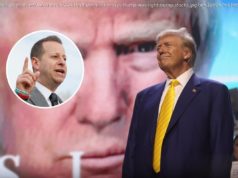 SEOUL, South Korea — Ban Ki-moon , the former United Nations chief, said on Wednesday that he would not run for the presidency of South Korea , a surprise announcement that deprived beleaguered conservatives of their likeliest candidate to succeed the country’s sidelined leader, Park Geun-hye.
SEOUL, South Korea — Ban Ki-moon , the former United Nations chief, said on Wednesday that he would not run for the presidency of South Korea , a surprise announcement that deprived beleaguered conservatives of their likeliest candidate to succeed the country’s sidelined leader, Park Geun-hye.
Mr. Ban, who returned to his native South Korea last month after 10 years as the United Nations secretary general, had been touted as a viable contender to replace Ms. Park, a conservative whose presidential powers have been suspended since the National Assembly voted to impeach her in December amid accusations of corruption. But Mr. Ban’s approval ratings have been falling, and he has been the subject of negative news coverage about his policy positions and a scandal involving his relatives.
“I have decided to fold my pure-hearted plan to lead an effort to achieve political reform and national unity,” Mr. Ban said at a news conference at the National Assembly. He apologized to South Koreans who supported his tentative presidential bid, including former diplomats and politicians.
The Constitutional Court is expected to decide in the coming weeks whether to end Ms. Park’s presidency , and political parties have been gearing up for an election that could take place as early as spring. If Ms. Park survives in office, an election will be held in December to decide who succeeds her when her five-year term ends in February.
Mr. Ban had acted like a candidate since coming home last month, paying homage to the dead at national cemeteries, meeting with politicians to discuss election strategy and holding news conferences, where he had tirelessly explained why he would make a good president. He said his experience at the United Nations would help him lead the country through tough problems, like the growing nuclear threat from North Korea and rising discontent over economic inequality.
But skepticism has abounded over his presidential bid, especially among progressives. And recent polls have indicated that the gap between him and the front-runner, the opposition leader Moon Jae-in, was only widening.
Detractors portrayed Mr. Ban as a weak diplomat who would be unable to institute badly needed reforms, or as a stooge for a conservative establishment desperate for a candidate. And domestic news outlets have hounded him over what they called his changing stances on the sensitive issue of “comfort women,” the euphemistic term for the Korean women forced into sexual slavery for Japanese soldiers during World War II. A bribery scandal that involved his younger brother and nephew also drew considerable news coverage.
But the main argument made by his critics was that Mr. Ban, essentially an outsider with no political faction of his own, would not survive the thrust and parry of domestic politics. And that was what did him in, Mr. Ban indicated during his news conference on Wednesday.
“I was deeply disappointed by outdated and narrow-minded egoism among some politicians,” Mr. Ban said. “I have determined that it is meaningless to try to work with them.” He said he had been subjected to “slander and fake news that bordered on character assassination.”
Mr. Ban’s elevation to the top United Nations job a decade ago, after a stint as South Korea’s foreign minister, has made him one of the country’s most celebrated role models for the young. School textbooks, for example, refer to him as a “man who made South Korea proud.”
Some conservative politicians have suggested that Prime Minister Hwang Kyo-ahn, who is serving as acting president while Ms. Park is on trial before the Constitutional Court, should run as a conservative candidate. But Mr. Hwang has not committed to doing so, and he has ranked a distant third or fourth in recent polls surveying the popularity of potential candidates.






